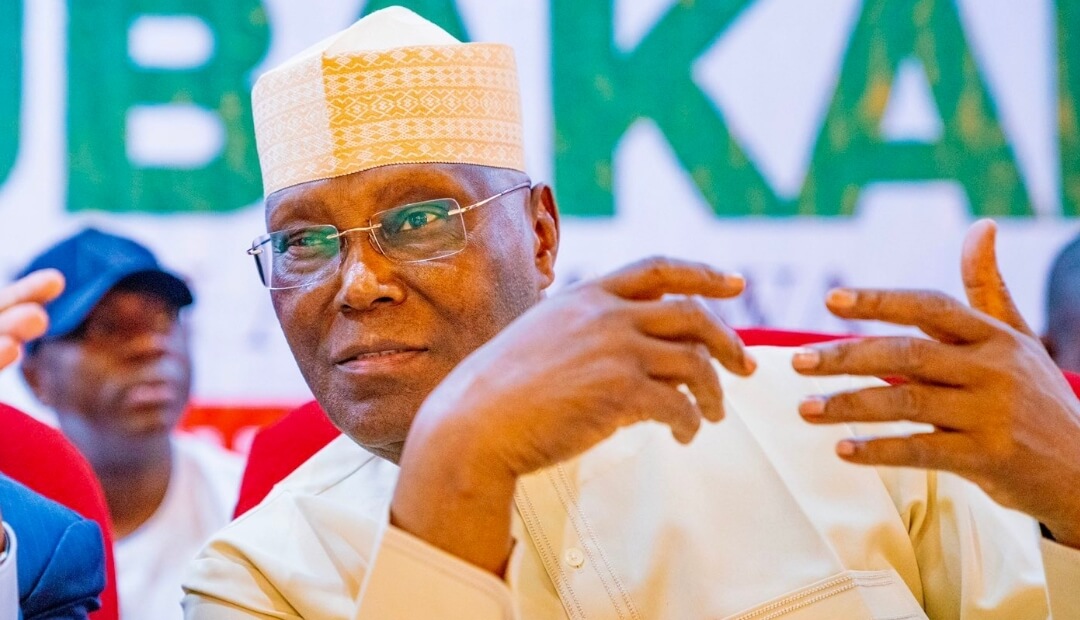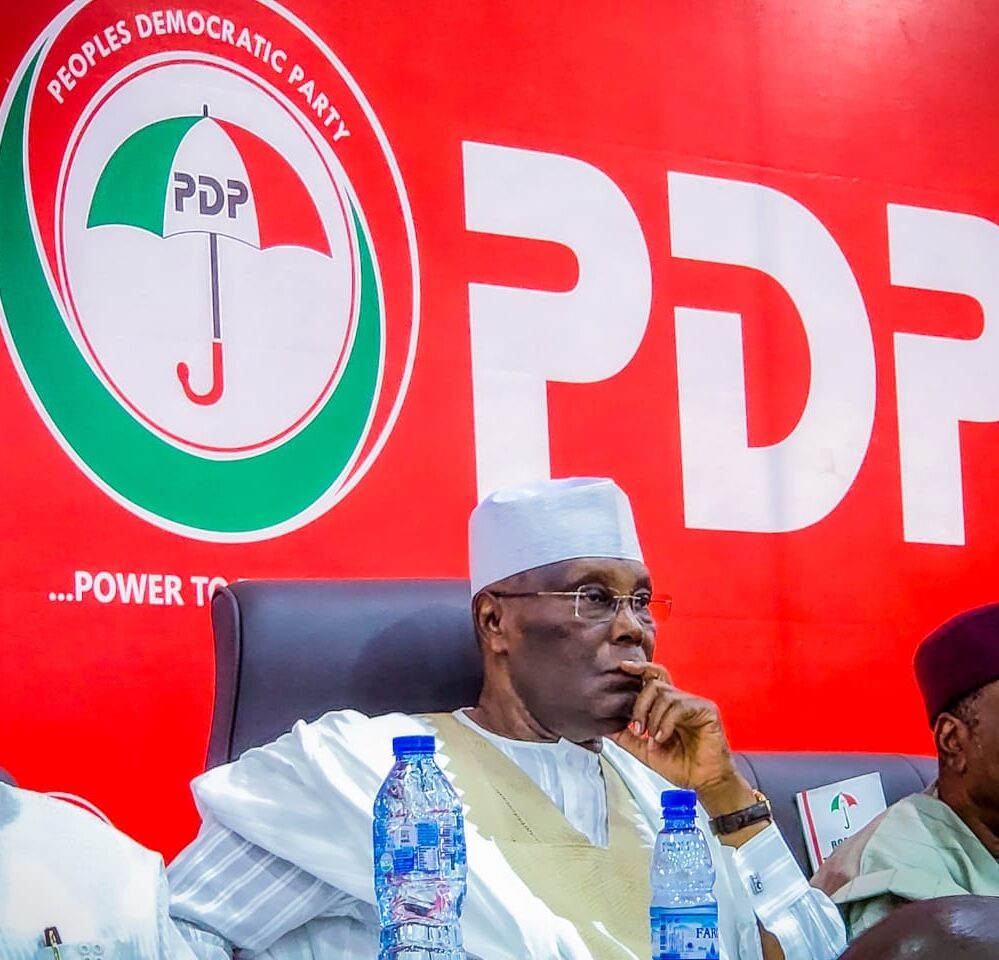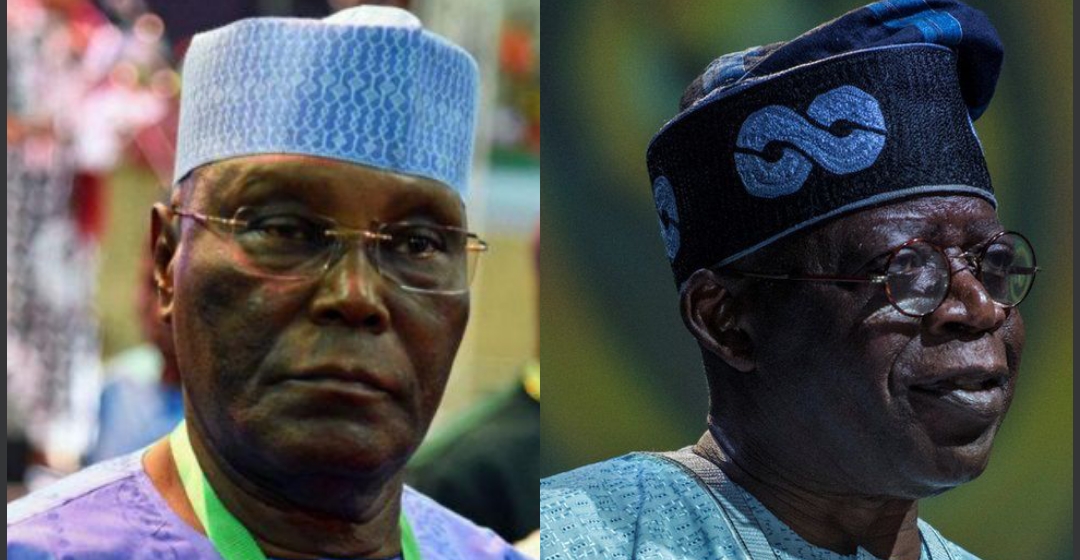Atiku Abubakar Opens Up On Politics, Assassination Attempts, And The State Of Democracy In Nigeria

Atiku Abubakar Talks Politics and Leadership in Exclusive Interview
Former Vice President and current PDP presidential candidate, Atiku Abubakar, sat down with Adesuwa Giwa-Osagie for an in-depth discussion on Nigeria's political landscape. The interview, part of the show "Untold Stories," delved into Atiku's controversial decisions, leadership philosophies, and his experiences navigating the often tumultuous waters of Nigerian politics. In this exclusive conversation, Atiku opened up about his refusal to select Nyesom Wike as his running mate in the 2023 election, the leadership style of Senate President Godswill Akpabio, and the pervasive issue of corruption within the National Assembly. It's a conversation you don’t want to miss.
Naija News had earlier reported that Atiku addressed his decision not to choose the current Minister of the Federal Capital Territory (FCT), Nyesom Wike, as his running mate in the 2023 election. But there's more to this story, as Atiku explains his rationale in detail during this sit-down.
Recalling the Past: Atiku Talks Assassination Attempt
Giwa-Osagie posed a critical question to Atiku: “You went into exile in '97?” Atiku corrected her timeline, responding with a firm “Yeah, around no, 1990.” The conversation then turned to a darker chapter of his life—his survival of an assassination attempt. Giwa-Osagie pressed further: “Before you went on exile, you survived an assassination attempt I believe in Kaduna.”
Read also:Who Are Hollywoods Richest Alist Stars
Atiku recounted his harrowing experience, explaining how the assassination attempt occurred during his time in the constitutional assembly around 1994. He detailed the dramatic events: “I faced an assassination attempt and then dashed out to London and from London to the United States.” The former Vice President went on to describe the day's events, emphasizing the sacrifices of those who died to protect him and ensure the path to democracy. He explained, “Yeah, I mean, actually most of them were security, my personal security at home and then six policemen who had come. You know, to rescue me, and unfortunately they did not know that there were soldiers who were at the gate and by the time they approached the gate, of course then there was exchange of fire. I think that exchange of fire saved me because the moment you know those who held me hostage, you know in my room had gunshots they now immediately started running, so they came down.”
Atiku shared more details of the tense moments: “By the time they came down, they found that six of the eight policemen were dead and then two of my security also.” He added, “Yes, I mean my eldest son was with me, he came on holidays from the UK. They got hold of him first, you know, at gunpoint, and then when I now opened the window blind from upstairs, I saw that they are holding him and at gunpoint I decided to dare them so I came out I said look take back my son to his room. If you are looking for me, I’m here. So they took him back. And then of course, as I was coming down the staircase, and it was a glass door, so they saw me and they cocked and opened fire, but then, as a trained person also, I went down. And then of course the bullets, you know, went into the wall and glass and so on. And then they stopped, you know, shooting, and I now got up. I said, But I’m coming to open the door for you. Why would you be, you know, shooting? Open, open, open. So I opened. And they said, okay, take us to your room.”
He concluded the story by reflecting on how the situation unfolded: “And it was when we were in my wife’s room, they heard the gunshots. Mhmm. And then abandoned me and then started running down, you know, to escape. Later on, I was told it was a security operation.”
Insights from the Late Inspector General of Police
Atiku shared that the late Inspector General of Police, Kumasi, later confided in him about the incident. “The late inspector general police then Kumasi confided in me because there was a security meeting and he reported that six of his policemen had been shot died in Kaduna and then a member of the security council said it was a security operation. So he said if it was a security operation, am I not entitled to know? Because the inspector general police. That was something.”
Stepping Down for MKO Abiola: A Decision That Defined a Presidency
Giwa-Osagie asked Atiku why he stepped down for MKO Abiola in the SDP presidential primary election of 1992. Was it a strategic move to secure a vice-presidential nomination? Atiku clarified, “No, I think there have been some misinterpretations or misrepresentations of what actually happened even though I had in the past addressed, you know, the circumstances surrounding that incident.” He recounted the pivotal moment after the first ballot when he reached out to the late Yar'Adua, who was banned from attending political gatherings at the time. “So I told him, I said look, if you don’t come to Jos, there is every likelihood that, you know, Babagana Kingibe was going to be elected, and I know you didn’t want it. So you better come to Jos no matter how late. And he drove all the way from Kaduna to Jos.”
Atiku continued, “By the time he came to Jos, it was about three, 4 AM and he called for a meeting in Alhaji Kwande’s house. I do not know what he discussed with the late MKO Abiola. I didn’t know. I was not privy to the meeting, and he did not tell me about it. But when we got to the meeting in Ambassador Kwandi’s house, all he told me was that Turaki. I said yes sir.” He added, “He said step down for MKO Abiola. I said okay sir, I have stepped down. So not until, you know, we came back to Kaduna because after the second round and Abiola won, Abiola led the show here. Abiola and I were on the same flight. So, Abiola dropped us in Kaduna and then proceeded to Lagos. It was in Kaduna that he was telling me this was what he agreed with MKO Abiola.”
Read also:How Much Do Our Favorite Tv Stars Earn
Atiku explained the complexities of the decision: “So, then, of course, we waited for a long time. You know, it took time before Abiola announced his running mate. What I now understand is that Abiola was put under pressure by the SDP governors then. They threatened him and said, Look, if you don’t take Kingibe, we are not going to support you. The reason is that all of them got their tickets when Kingibe was the chairman of SDP. And Abiola felt that it was a risk worth taking. So and I think he decided to discard, you know, the agreement he had with Late Yar’Adua and of course nominated Kingibe as running mate.”
Why Atiku Passed on Nyesom Wike as His Running Mate
Giwa-Osagie also questioned Atiku about his decision not to select Nyesom Wike as his running mate in the 2023 presidential election. Did Atiku regret this choice? Atiku firmly stated, “No, not at all. Because you see, in 2019, when I won the ticket in Port Harcourt, I came back here and then went straight to Abeokuta to meet my boss, President Obasanjo, and told him, Mister President, I got the ticket. So he asked me, he said, Okay, from where is your running mate going to come from? I said of course, it’s either Southeast or Southwest. He said no. Leave Southwest because I was there for eight years. Go to Southeast. I said, okay, sir. Do you have anybody in mind? He said, Yes. The first person he suggested was Ngozi Okonjo-Iwela.”
Atiku elaborated, “So I told him Ngozi was not a member of our party. If I forward the name to the party, they will reject it. I said, Okay. He said, What about Soludo? I said, Soludo too is not a member of our party, so he will not be accepted. And I said, what about Peter Obi? I said that Peter Obi was a member of the party. He said, Okay, thank you. I said, Okay, sir.” He continued, “So I came back here in this very same building, very same room, and someone in a meeting of the party leaders, who was attended by Uche Secondus, others, including Wike himself, Tambuwal. I remember there were about seven of them. I said look I have been to my boss, and this is what he said. Do you have any objection? Leaders of the party and also leaders of the governor’s forum said No, we don’t have an objection. I said Okay, go and announce.”
Atiku concluded, “Now, I came under a lot of criticism after that. They said I did not consult with the party enough. So, in 2023, I threw the whole thing to the party. I said okay, set up a committee and recommend three people for me to pick as a running mate. And they set up a committee, and they came with a recommendation, number one, number two, and number three. So I picked number one (Okowa). And the other one was Wike, who was number two. And number three, I don’t know. Yeah. Udom? Udom. That’s right.”
Respecting His Mentor
When asked why he consulted Obasanjo on his choice of running mate despite their strained relationship, Atiku explained, “Notwithstanding, he was my boss and is still my boss, so I owe him that, you know, that respect and that loyalty because I didn’t ask to be vice president. He simply called me, and he said are you ready to be my vice president? I said, Why not, sir? I said, okay.”
Atiku Reflects on Democracy's Struggles in Nigeria
Atiku expressed his concerns over the state of democracy in Nigeria following the declaration of a State of Emergency in Rivers State. He admitted, “It is very dire. No doubt about that. I feel disappointed. The next generation after me, many of them had been governors, had been senators. Instead of seeing an improvement in the level of governance at the state level and so on, I don’t see it. So I feel a little bit distressed.”
Discussing coalitions and alliances, Atiku reminisced, “We had a similar, you know, one which was in 2014. And there were about four of us, is it two or three? We all ran for president, and one of us emerged, and we all supported the one who emerged, and he won. I don’t know because there has to be, first of all, a viable platform, you know, and more than any other time in the political history of this country, particularly since the return of democracy, I have not seen Nigeria in dire need of, you know, an experienced and credible leadership during this time.”
Women in Politics: Atiku Calls for Change
Atiku lamented the underrepresentation of women in Nigerian politics, sharing his thoughts: “It is disheartening or disappointing. I don’t know what to say, which word to use about the decline. I remember when we were in office, the president (Obasanjo) once called me and
Reekado Banks Speaks Out: A Hidden Issue In The Nigerian Entertainment Industry
Rep Dawodu Clarifies: No Dissent During Voting On Rivers State Emergency
FIFA Unveils Massive $125 Million Prize For 2025 Club World Cup Winner


